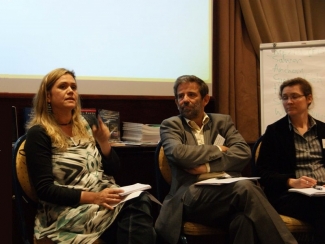How Can African Agriculture Adapt to Climate Change? A Counterfactual Analysis from Ethiopia
The authors analyze the impact of different adaptation strategies on crop net revenues in the Nile Basin of Ethiopia and they estimate a multinomial endogenous switching regression model of climate change adaptation and crop net revenues and implement a counterfactual analysis.
